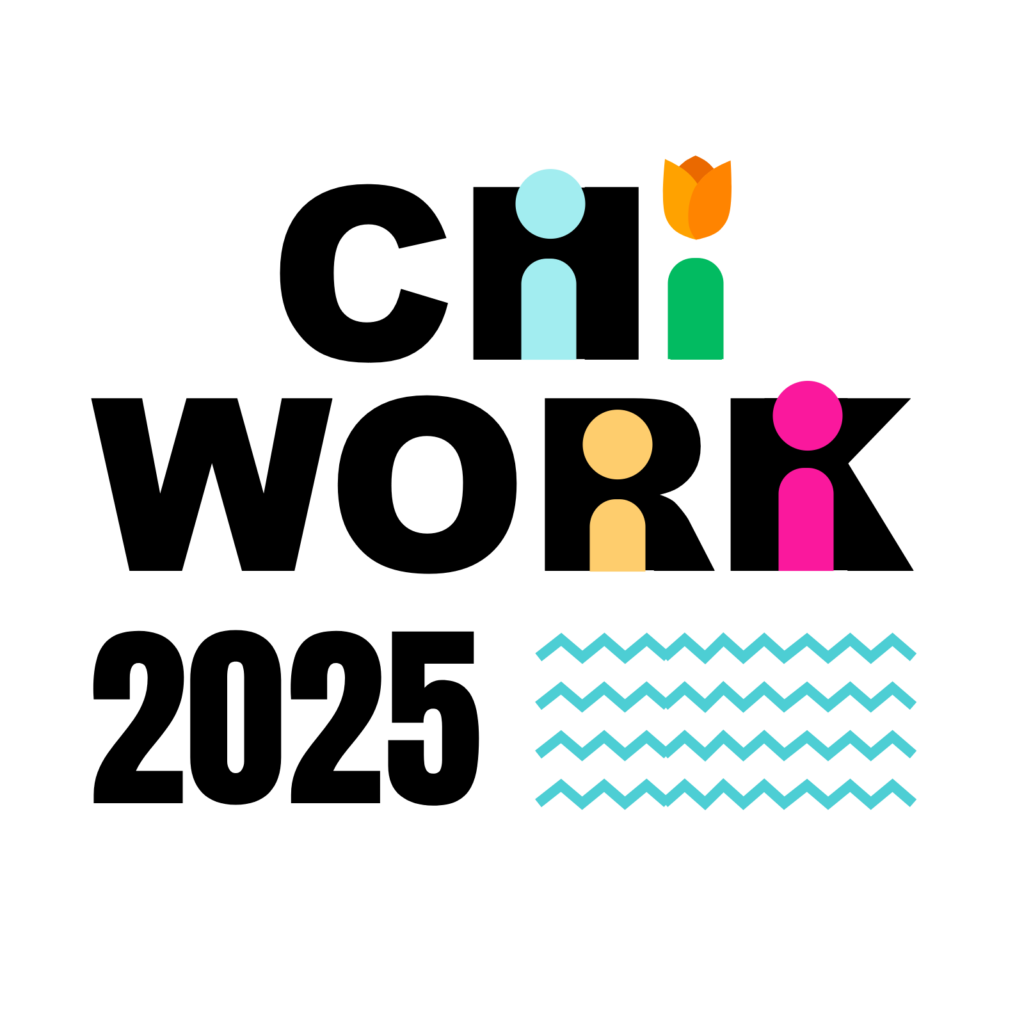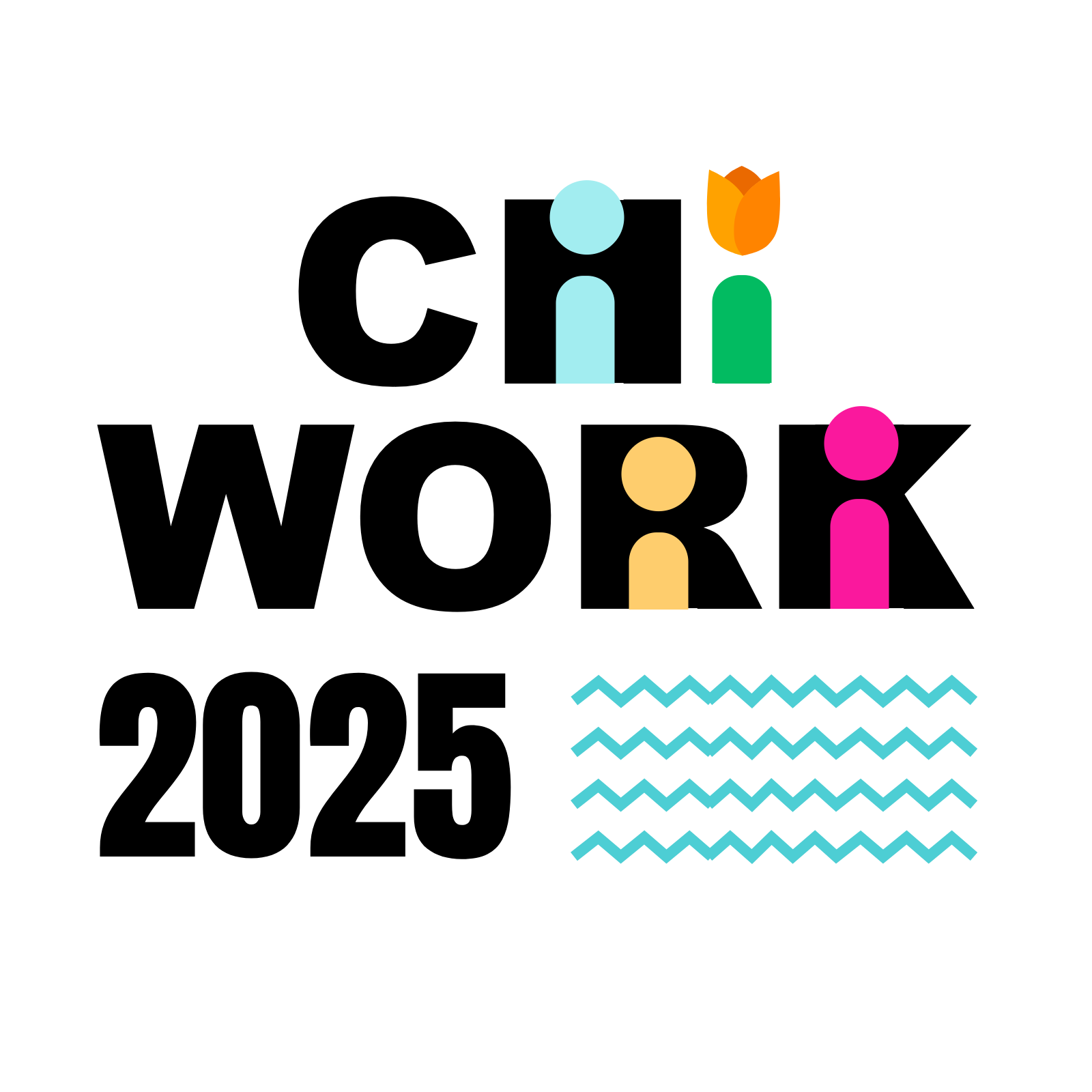The Demos track provides the CHIWORK community with an opportunity to present new and exciting contributions that showcase innovative technologies, extend prior research conversations, or detail short self-contained studies. For the meeting we are soliciting papers relevant to the topic of the conference, with various contribution types from a range of disciplines and perspectives, including the humanities, social sciences, computing, and engineering.
Submissions should be submitted via Easychair (https://easychair.org/conferences/?conf=chiwork2025 – choose the Work in Progress track) and be anonymized. Submissions should include a manuscript using the ACM Master Article Submission Template (single column) with a length of maximum 4 pages excluding references. Here you can find the templates for LaTeX, Word, and Overleaf. If you use LaTeX, please use: documentclass [sigconf, review, anonymous] {acmart}
Authors are required to submit up to a three minute video with their submission showing a detailed hands-on presentation of their demo as well as an additional document (.pdf or .txt) with the list of hardware they would need to bring to the venue.
Important dates
All times are in Anywhere on Earth (AoE) time zone. When the deadline is day D, the last time to submit is when D ends AoE. Navigate to the time.is website if you’re not sure.
- Submission deadline:
March 31, 2025(extended) April 7, 2025 - Notification: April 19, 2025
- e-Rights completion: April 25th, 2025
- Camera-ready deadline:
April 26th, 2025(extended) April 28th, 2025
Contribution Types
Systems/demos submission – demonstrating specific examples of novel systems that have been built and might facilitate new ways of working, which will be evaluated based upon the novelty of the system and the implementation detail described in the paper.
Topics
Topics of interest include, but are not limited to
- Tools for remote work: working from home, working while commuting, and meetings with remote participants
- New ways of getting work done: techniques for interleaving work; easy resumption, engagement, and disengagement; and incorporating well-being needs in productivity tools
- Working and trust with AI and automation: techniques for cooperation and collaboration with AI agents, new tools for task automation, working in and with automated environments and entities including cars, drones, and robots; designing for fairness, transparency and dignity
- Technologies for the future of work: networking, augmented reality, virtual reality, wearable devices, and human-robot collaboration
- Supporting worker well-being and health: maintaining work-life boundaries, supporting physical movement, and facilitating work attachment and detachment, exploring how systems support or privilege well-being of workers in gendered, race-, caste- and class-informed ways
- Designing digital tools: preparing the ground for professional development and adaptation to and development of individual skills
- Matching and developing worker skills for job opportunities: assessing worker skills, matching existing skills to new job opportunities, platforms and peer-networks for learning new skills
- Inclusion and accessibility: technology that is built for equality and technology that supports all abilities
- Large language models at work: use in practice, risks, organizational and staff perspectives
- Security and privacy: protecting work infrastructure from malicious actors and maintaining privacy while providing personalized support for work and well-being
- Novel ways of measuring outcome: rewarding performance so that it takes into account an individual’s unique needs, incorporating well-being as an integral part of productivity, fostering and measuring creativity and innovation, and supporting self-reflection by workers
- Tools and platforms for hiring and managing workers: new models for hiring, onboarding, and management; understanding and supporting freelancing, on-demand, crowdwork, and gig work
- Societal impact: supporting decision-making for policy and regulation, integrating perspectives of workers, firms, governments, and communities; addressing the economics and resilience of individuals, communities, and society
Selection Process
Submissions will be reviewed through a Juried process and receive light feedback from reviewers. Submissions will be reviewed against the following criteria:
- Significance: How important is the problem or question that this submission addresses? How greatly can others benefit from this work?
- Originality: How does the work build on, or speak to, existing work in the area? How novel is the contribution?
- Validity: How well are the chosen methods described and justified within the submission? How well are the submission’s claims and conclusions supported by the results?
- Clarity: How clear, understandable, and targeted is the writing? To what extent does the submission conform to all formatting requirements and the 4-page limit?
- Promote discussion: Does this work present research contributions or ideas that will stimulate interesting conversation among CHIWORK attendees? To what extent will the presenters benefit from being able to discuss their work and receive feedback at this stage?
Demo Chairs
Andrii Matviienko, KTH Royal Institute of Technology, Sweden
Kashif Imteyaz, Northeastern University, Boston, USA
For questions, please email demo@chiwork.org

